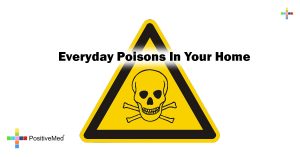
Signs You Have Omega 3 Deficiency
A number of research studies indicate omega-3 fatty acids are a critical nutrient needed to provide resistance to a number of illnesses. As the importance of omega-3 fatty acids becomes better known, more people are taking active steps to include this substance in their diets, through the foods they eat or by taking supplements.

What Are Omega-3 Fatty Acids?
Omega-3 fatty acids are polyunsaturated fatty acids that are necessary for normal function of the body, such as cell membrane production in the brain and blood clotting. However, science is also finding that this essential compound is also instrumental in preventing heart disease, stroke and a number of other health problems.
Symptoms of omega-3 fatty acid deficiency include:
· Learning disabilities
· Arthritis
· Eczema and other skin problems
· Heart disease
· Obesity
· Depression
Duke University School of Medicine Study
A recent study published in the Annals of Rheumatic Diseases conducted by Duke University School of Medicine found that mice fed a diet high in omega-3 had healthier joints that those that were fed saturated fats and omega-6 oils. The researchers found that the mice fed the omega-3 had less osteoarthritis, regardless of weight factors that were previously thought to affect the disease. These results indicate that people should consume more omega-3 to slow the progressive of osteoarthritis, a common joint disease of aging.

Food Sources of Omega-3 Fatty Acids
You can increase the amount of omega-3 fatty acids in your diet by adding more of the following foods:
· Oily fish, such as mackerel, halibut, salmon, herring, fresh tuna, trout and oysters
· Eggs
· Milk
· Margarine
· Yogurt
· Brussel sprouts
· Spinach
· Canola oil
· Flaxseed oil
· Soybean oil
Taking Omega-3 Supplements
If you do not get sufficient omega-3 fatty acids in your diet because of your food tastes, consider taking an omega-3 supplement. A supplement can allow you get the benefits of this important compound in an easy, daily capsule. These supplements are available at pharmacies, health food stores and on the Internet.
High Quality and Low Quality Omega-3 Supplements
Dietary experts recommend 1,000 to 3,000 milligrams of omega-3 supplement per day. Within this range, buyers will find many brands on the market at a variety of price points. Ads for krill oil make it sound like it is the preferred source for omega-3, but the truth is, there is no particular advantage to this product. Consumers will notice that low quality omega-3 supplement capsules develop a cloudy, blurry look after being stored in the refrigerator. Good quality omega-3 capsules will remain clear. Of course, you can’t bring a refrigerator with you when shopping for supplements, but if you notice this cloudy look, change your brand of supplements to a higher quality option.





